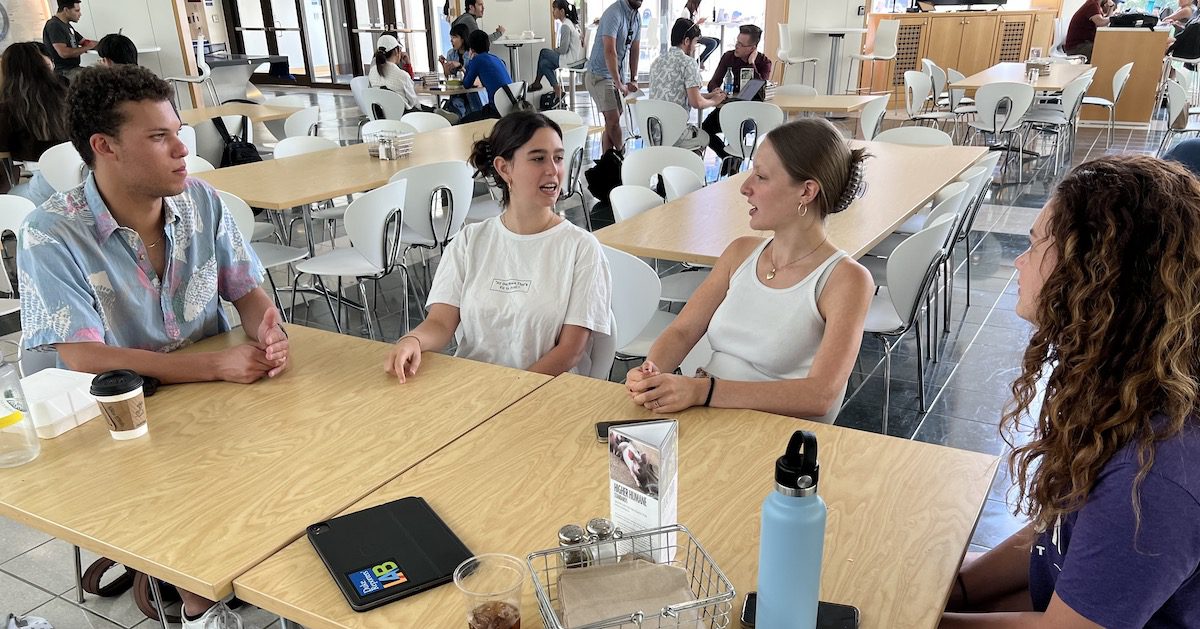The 9th Street Journal began the year with an unusual goal: to attend the meetings of Durham’s little-known boards and commissions that never get covered by local journalists — obscure groups such as the Dangerous Dog Appeal Board and the Safety and Wellness Task Force.
Five months later, the results have been fascinating and illuminating. In the series Under the Radar, our readers have seen the Alcoholic Beverage Control Board discuss its successful bourbon lottery; they’ve watched the Historic Preservation Commission talk about the intricacies of vinyl window frames; and they’ve seen the disarray of the Animal Welfare Advisory Committee.
In the process, readers also have seen a positive aspect of local government — how dozens of citizens devote many hours to improving civic life.

Bill: The biggest theme in our coverage has been the lack of transparency. The websites for some of the organizations you’ve written about are pretty lousy, they contain inaccurate information about meetings — no agendas, no minutes. In some cases, you were unable to get even the most basic details without filing a public records request.
Gabrielle: So for the Animal Welfare Advisory Committee meeting, their website said the meeting would be in person at the animal shelter, and so I went to the animal shelter and we’re driving around and it’s completely dark, there were no cars in the parking lot. We found out that it was on Microsoft Teams. So I joined the meeting about 30 to 45 minutes late after getting the link because it was not in person like the website said.
Bill: How about the Dangerous Dog Appeal Board?
Jacqueline: In order to get any meeting minutes, I ended up having to file a public records request because no one would give me the minutes otherwise. The Durham County Women’s Commission, which I’m writing about right now, they function so well and seem to have everything really organized. But even with them, I tried to reach out for a link for their Monday night meeting, which was listed as virtual and did happen virtually, and they never got back to me.
Bill: Maybe the best in terms of transparency is the liquor board.
Nina: Yeah, while Gabrielle and Jackie were speaking, I was thinking about how the commissions and task forces that I’ve written about have been pretty well-organized and pretty transparent. The Alcoholic Beverage Control Board seemed very enthusiastic about me attending their meetings. It was pretty easy to contact the chair of the board and other members, and people seemed really eager to provide me with information. And I think I’ve actually had that experience with the other boards I’ve written about, too.
Bill: Did you all come away from this with a different way of looking at the local government?
Jacqueline: It’s easy to be critical of these boards and commissions because we are looking specifically at how they function, transparency, etc. However, the people working on these commissions are very busy in their daily lives (and usually are not paid). To care about your local community to the extent of joining a board or commission and doing work out of the goodness of your heart — it’s something that can get overlooked.=
Nina: Oh, yeah, I totally agree with that. Regardless of the people involved, I think the themes of disorganization that we’ve all observed are much more just a function of lack of funding and funding going to other things that arguably are more important. I was really pleasantly surprised by the passion and community-mindedness of the individuals that I spoke to. Even the chair of the alcoholic beverage commission continually emphasized that he does this because he sees it as a way to serve the community, to make people happy, and he sees the board itself as a community.
Chase: The city staff really impressed me, at least in the case of the Recreation Commission, because the city staff seemed highly competent, and they’re the ones that were showing up to the City Council meetings to talk about these projects and then also taking that same information to the Recreation Advisory Commission to try to get the people’s input on that. City council members change every few years and come and go, but a lot of the people working in these departments, I guess you’d call them bureaucrats, they’ve been there for a while.
Bill: Do you all leave with more confidence in local government?
Chase: Yeah, I think so, because especially when the news about Durham City Hall is, “Council members brawling” and “FBI investigating.” But if you actually live in Durham and you work on one of these commissions, then, there’s so much more to the government than that — hopefully.
Photo at top: 9th Street Journal reporters Chase Pellegrini de Paur, Jacqueline Cole, Nina Moske and Gabrielle Lazor.





